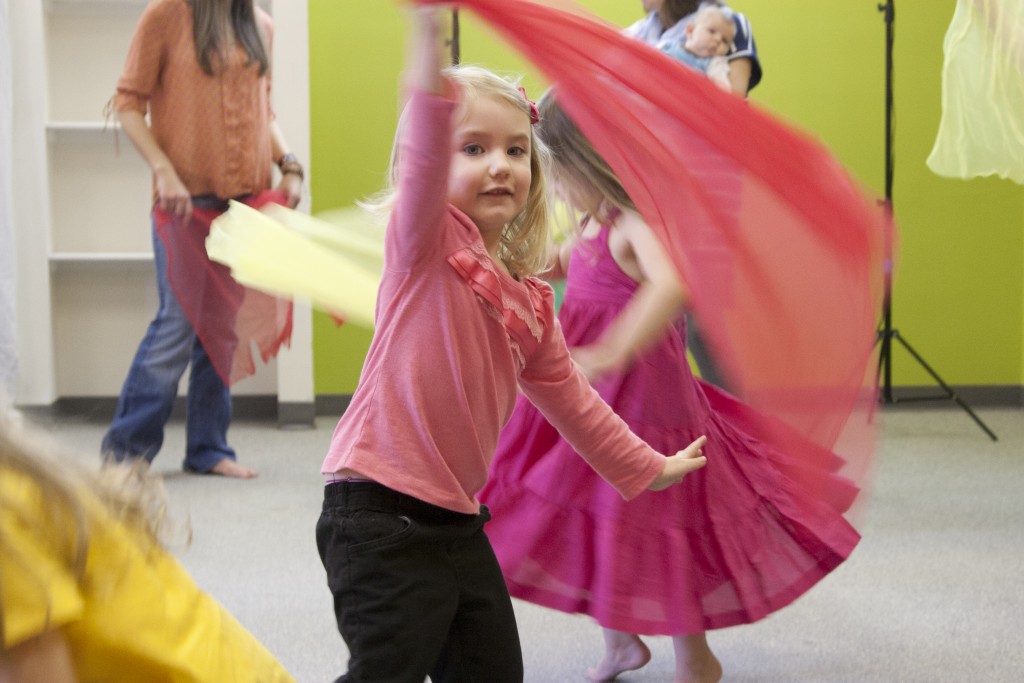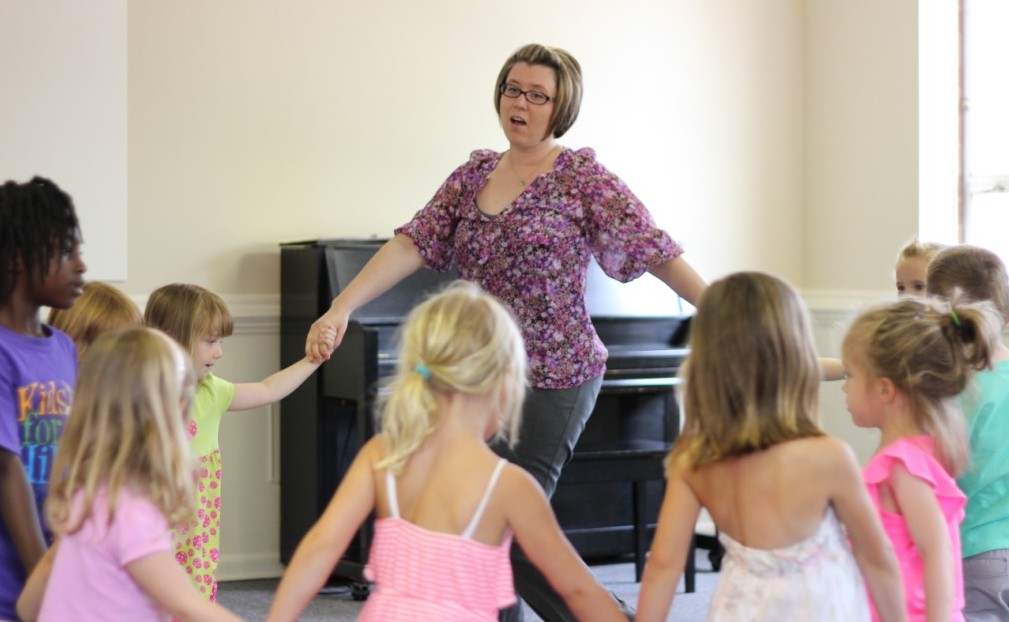Part 1 – Through THE BODY
Children’s piano teachers often must “start from scratch” in teaching the child not just the keyboard, but all of the different facets of music. That is why many piano instructors will attest to how a child that has been involved with music education classes from an early age is often better equipped to learn piano, while doing so at a much greater pace. The benefits of introducing music to babies at the earliest stages of life are well known, and some of those same benefits can be applied to learning the piano. There are several reasons for this, which can be roughly broken down into the areas of Body, Mind, Spirit, and even Family/Community.
In the following months we will start to explore how participation in a children’s music curriculum, even at the earliest stages of infancy, help to set a strong foundation for learning any musical instrument later in life. The first facet of this strong musical foundation that will be examined regards the body.

How Body Awareness through Music Helps Children Prepare for Piano Lessons
During the first developmental period of birth through age six, children gain control and awareness of their bodies. As their rhythm and motor instrument, a well-coordinated body will provide the gross and fine motor skills a child will need to play the piano. A vital and natural part of this first stage of life, movement enables a child to communicate non-verbally how they see the world.
Today, however, children are too often sitting – in front of the television, a computer screen, or in a car seat while busy parents run errands. This sedentary situation results in children having less control over their body movement at an early age. Music promotes movement, and purposeful movement through music responses help children with particular skills such as hopping or swinging, while also developing such musical skills as a sense of beat and meter.
- Music and Movement Teaches Children a Steady Beat – Children experience their own internal pulse, which allows them to naturally recognize and adapt to the pulse of an external source. Infant movements such as rocking or bouncing is often in response to a beat, whether musical or otherwise. Through musical exposure and encouragement, these movements can be cultivated into the understanding of a steady beat.
- Language & Movement Help Teach Musical Understanding – Impulse control is a vital ability that tells our body when and how to move. Musical games, like Walk and Stop which incorporate movement instructions, help children establish important connections between language and motor skill. Later in childhood, this developing self-control prepares children to enter instrumental lessons that require language-mediated movement.
- Expressive Movement Supports Self-Awareness – Children delight in singing and dancing. When they are exposed to songs with purposeful movement and phrasing, they develop a sense of meter and how to feel the phrase through both music and movement. This relationship reinforces kinesthetic awareness and perception essential to self-awareness.
- Simple Instruments Build Coordination and Concentration – Playing simple rhythm instruments, such as shakers, rhythm sticks, bells, or drums, serve as an excellent preparation for finger, hand, and arm coordination needed to play the piano. While whole-body control and coordination are gained through dancing and other locomotor activities, simple instrument playing supports upper-body control and finger dexterity. Learning body control, including quieting the body between beats, helps children’s ability to focus their listening and concentrate on the finger movements required in playing a musical instrument.
Learning body awareness and purposeful movement are important in the development of a child’s motor skills and coordination. Exposure to musical instruction at an early age, whether through purposeful movement or simple instruments, reinforce the steady beat, fine motor skills, and focused listening skills that will help them to approach keyboard instruction with a strong foundation.
This commentary is based on the article The Well-Prepared Beginner: Prepared in Body, Mind, Spirit, and Family by Lorna Heyge, Ph. D. Dr. Heyge is a pioneer in childhood music instruction, as well as a piano teacher of many years.






